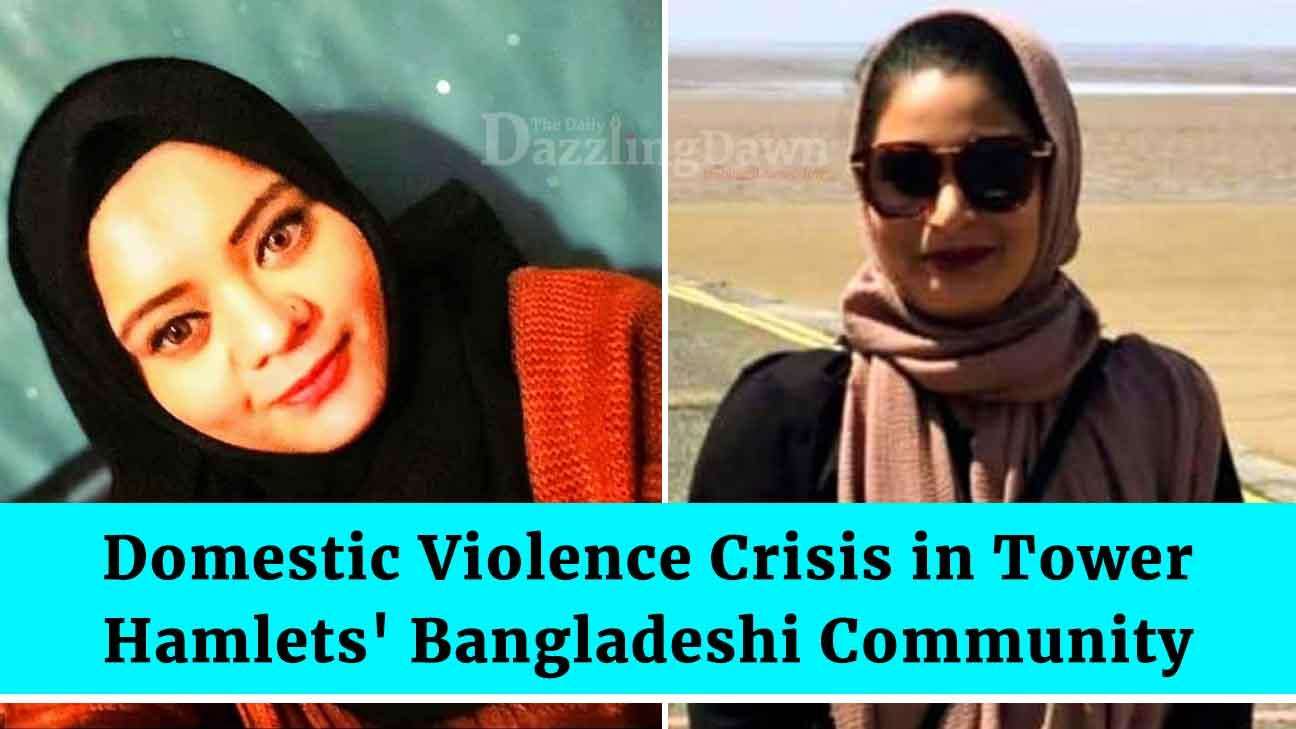Tower Hamlets, celebrated for its vibrant British Bangladeshi community, is confronting a series of profound domestic tragedies, as deaths linked to domestic violence cast a long shadow over the borough. While overall crime rates in Tower Hamlets are often noted as comparatively favourable, the intimate and devastating nature of these fatalities, occurring within homes and families, has sparked widespread concern and amplified urgent calls for enhanced support and intervention.
The Metropolitan Police Service (MPS) remains steadfast in its commitment to investigating serious incidents across the borough. A recent arrest and charge on June 27th in connection with a woman's death in Tower Hamlets starkly underscores the grim reality that serious crime, including domestic violence, persists as a critical challenge. These investigations are meticulous, with details often kept confidential to ensure the integrity of the legal process and protect the privacy of those affected.
A Disturbing Pattern of Tragedies
The community has been deeply shaken by several incidents involving British Bangladeshi individuals, revealing a distressing pattern of violence within domestic settings. In the second week of March 2024, the Limehouse area witnessed a horrific event when a 21-year-old Bangladeshi daughter-in-law, who had arrived in Britain just ten days prior, was tragically murdered by her mother-in-law. The young mother succumbed to knife wounds while her two-year-old child's father was at work, leaving the Sylhet-rooted family utterly reeling.
Read More: Bangladeshi Mother Killed by Son in East London
More recently, late on Thursday, June 26, 2025, police responded to a stabbing on Monier Road. In a profoundly disturbing incident, a Bangladeshi mother, approximately 50 years old, died from stab wounds allegedly inflicted by her own son. Local Councillor Abu Talha Chowdhury confirmed the devastating act, expressing the community's shock at a son murdering his mother in her own bedroom.
Adding to the borough's grief, on May 1, 2025, Daily Dazzling Dawn reported a tragic brother-on-brother killing in Mile End. Local sources indicated the incident, which occurred inside a council flat, followed an argument between two British Bangladeshi brothers. The 20-year-old victim died from multiple stab wounds despite the immediate efforts of paramedics. The family's roots trace back to Golapgonj, Sylhet, a common origin for many Bangladeshi families in the area, and Councillor Mohammad Chowdhury also confirmed the murder.
These recent tragedies echo similar incidents from previous years that underscore the complexities of domestic violence and family conflict. On March 24, 2022, 40-year-old Yeasmin Begum, a mother of three, was brutally killed by her estranged husband, Quayum Mia, 41, in Bethnal Green during a period of separation and ongoing divorce. Yeasmin was allegedly stabbed to death when she returned home and found Quayum attempting to steal valuables, after which he fled with cash, bank cards, and jewellery. Just over a year later, on April 30, 2023, 24-year-old Soma Begum was murdered in her Docklands flat. Her husband, Aminan Rahman, 45, is alleged to have killed her in front of their two children before disposing of her body in the River Thames inside a large suitcase. Aminan initially reported her disappearance, but police investigations led to the recovery of her body ten days later, and a complaint was filed against him. A chillingly similar case of sibling violence occurred in 2016 when British Bangladeshi Juhel Ahmed, then 30, was sentenced to life imprisonment for murdering his 36-year-old brother, Ruhel Ahmed. The fatal altercation at their family home in Stepney stemmed from a dispute over broken plant pots, tragically escalating into a fatal strangulation.
Understanding the Layers: Cultural Nuances and Under-Reporting
These individual tragedies within Tower Hamlets are indicative of a broader, often hidden, struggle with domestic abuse. While Office for National Statistics (ONS) data on domestic abuse prevalence in the UK, for example, might show "Asian or Asian British" people reporting lower rates overall compared to some other ethnic groups, experts highlight that this statistic can be misleading due to significant under-reporting in some South Asian communities.
Cultural considerations can play a complex role. Strong notions of family honour (izzat) and collective identity, alongside the immense pressure to avoid bringing "shame" (sharam) to the family, can significantly deter victims from disclosing abuse or seeking external help. Furthermore, fear of isolation from the community, financial dependence on an abuser, the influence of in-laws, and even threats related to immigration status can compound the challenges faced by victims. Studies suggest that women in particular within some South Asian communities may face additional barriers like pressure to uphold traditional family values, making their struggle to seek help even more profound.
Community Concerns and Path Forward: A Collaborative Response
In response to these deeply troubling trends, the Metropolitan Police continue their vital work of investigating horrific crimes and bringing perpetrators to justice. However, there is a clear and urgent need for enhanced, culturally sensitive support systems within the community.
While Tower Hamlets Council and various local organisations are committed to tackling domestic abuse through comprehensive strategies, the recurring tragedies suggest that further action is needed to fully address the issue. The borough's "Serious Violence Duty Strategic Partnership Plan 2024-2027" explicitly includes domestic abuse as a form of serious violence, underscoring its gravity. Services like Solace Women's Aid in Tower Hamlets offer crucial crisis intervention, advocacy, and specialist support, including dedicated Sylheti-speaking Independent Domestic Violence Advocates (IDVAs) and Somali-specific caseworkers, recognizing the diverse needs within the community. Organizations like Hestia also provide targeted support for South Asian women and children. These efforts are geared towards early intervention, providing culturally appropriate support, fostering greater community engagement to break the silence and stigma, and promoting multi-agency collaboration to deliver holistic support for victims and survivors.
Additional Strategies for Preventing Domestic Violence
Given the ongoing challenges, further initiatives could be considered to strengthen prevention efforts and improve outcomes for victims in Tower Hamlets.
Councils could proactively engage with communities through trusted leaders, religious institutions, and community centers to raise awareness about various forms of abuse, including coercive control and economic abuse. Educational campaigns could also actively challenge cultural norms that perpetuate silence and stigma around domestic violence.
Effective prevention also requires addressing perpetrator behavior. Implementing and rigorously evaluating perpetrator programs that focus on accountability, behavior change, and addressing the root causes of violence can be crucial, alongside robust monitoring to ensure victim safety.
All frontline professionals, including healthcare providers, educators, housing officers, and social workers, should receive comprehensive, culturally sensitive, and trauma-informed training to identify signs of domestic abuse and confidently make appropriate referrals. This includes understanding the specific barriers faced by individuals from diverse cultural backgrounds.
Integrating domestic abuse awareness and healthy relationship education into school curricula from an early age can help break cycles of violence across generations. This would empower young people to recognize unhealthy behaviors and seek help, fostering a culture of respect and equality.
With increasing digital interconnectedness, councils could offer specialized support for victims experiencing digital abuse (e.g., online harassment, tracking) and economic abuse. This includes providing practical advice on financial independence and security planning.
Ensuring that services are genuinely responsive to the needs of victims requires their active involvement in the design and delivery of support programs. Creating "shadow boards" or advisory groups of survivors can provide invaluable insights and ensure services are culturally appropriate and accessible.
To better understand the scope and nature of domestic violence within specific communities, detailed data collection and analysis, disaggregated by ethnicity and other relevant demographics, is crucial. This data can inform targeted interventions and resource allocation.
Finally, for victims who need to relocate for safety, robust cross-borough agreements and support mechanisms are vital. This ensures that victims are not penalized by local connection rules when fleeing abuse and can access safe accommodation wherever it is available.
Local residents, community leaders, and support organizations are actively engaged in these crucial efforts. The aim is to cultivate an environment where such tragedies can be prevented, and where individuals, regardless of their background, feel safe, supported, and empowered to seek help, ensuring that Tower Hamlets continues its vital work towards being a secure and thriving place for all its residents.








.svg)


